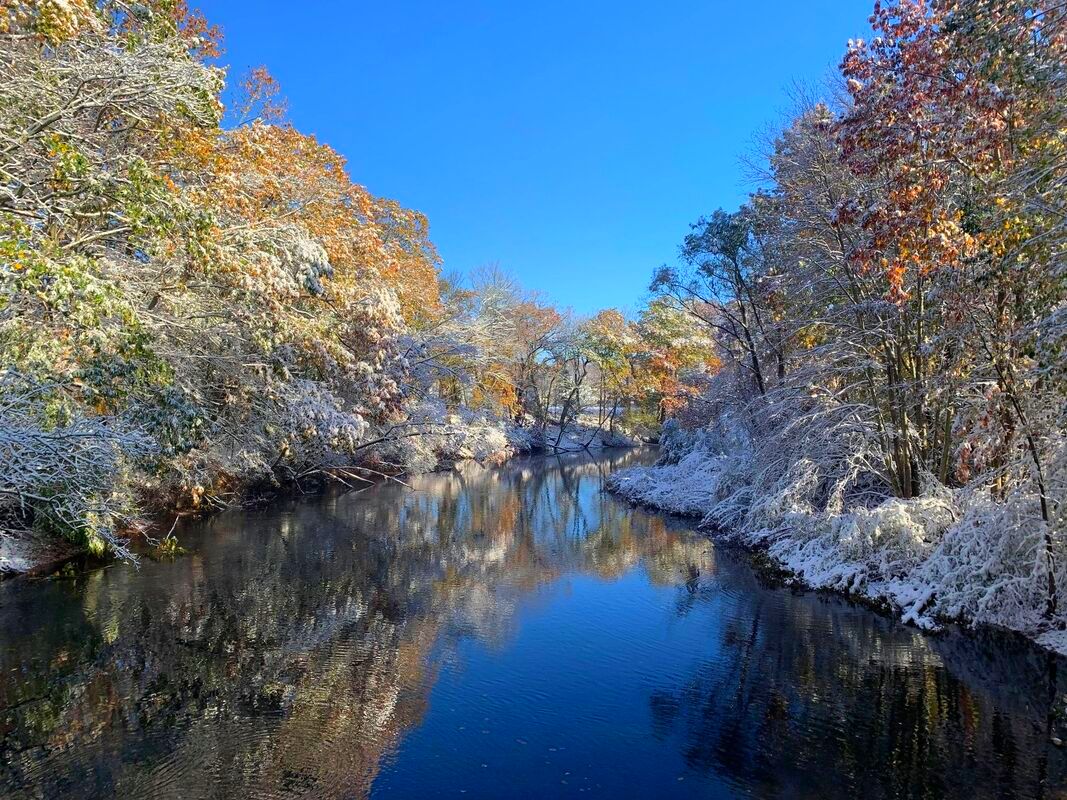 OK so...I have always been a religious person. Spirituality, theology, ethics, and philosophy were interests of mine since before I could remember. Honestly I think that as kids we are all intrigued by the question or our existence and purpose. Over time--and as we develop more accessible passions--those questions retreat to the backs of our minds and wake us up in the middle of the night occasionally. Am I living a just life? What is love? How do I act out of love? What will I do with this time before I die? These are hard questions to think about when we are trying to tag all the mundane bases of modern life. After all, asking these questions doesn't get us any more cash. If we take them seriously we sometimes get less! They also don't get the grocery list done or the house cleaned or the report filed. This means that most of us have little time to truly consider these questions and so being "spiritual" becomes associated with a vague warm feeling we experience on Christmas Eve or on top of a mountain. In those moments we are forced--in the face of awesome beauty--to at least acknowledge our connection to something greater. Then, holiday or vacation over, we return to the grind of the "real" world. Look, I love to hike. I love Christmas Eve! However, there is so much more to these questions and how we answer them. To think of our faith as something that exists in a discrete box--literal box in the case of a church building and metaphorical box in other cases--in our lives is to miss the point of the religious life. To live a life of faith is to consider these questions all the time. Then, through these questions, we touch the Transcendent. We experience the Divine and let it influence our next steps. Now clergy--like all people--go through rough spots in their faith and discipline. Our beliefs change and grow. We reject some ideas in favor of others and then sometimes return to the original belief. We also go on autopilot sometimes. The fact is, most of the work of a clergy person isn't terribly religious on the face of it. There are a lot of meetings and lots of planning for things. There are parties, classes, discussions and whatnot. Setting these events up isn't terribly theological. I have been through quite a few periods where I start to lose track of my faith and become basically like any other non-profit administrator. Then--usually--something will happen that reminds me that I am, in fact, a pastor. In those moments I recall that even the boring, mundane work of my day requires me to act out of big questions and their answers. I bring this up because when the pandemic started--along with some personal physical problems noted elsewhere in my blog--I was pretty sure that I would go into "survival mode" and that the journey of faith would take a back seat to everything that had to be done. There have been times where this was true. It is particularly difficult to stay faithful when there are thorny problems in need of resolution and a number of voices and differing opinions "speaking" at the same time. Occasionally I have struggled a bit while trying to seek consensus that hasn't really been there and trying to be rational for too long. However, in the end, I have found myself letting go and falling back into the answers those questions force upon me. I am learning to fall back on faith. It is weird to think of this as being something less-than-obvious in a congregation, but we all live in the practical "real" world. My faith community is filled with problem solvers who enjoy marshaling facts and applying them to sticky situations. Listening to hearts is harder. We are not rewarded for this behavior in our non-church lives. Our basic approach is to fight to get our way. We are surprised and frustrated when we don't. Right now though...things have changed. These days the path to survival and growth lies in thinking about others. It lies, in fact, in spirituality, ethics, theology, and philosophy. It is embedded in what we do in our religious lives. Social distancing--like social justice--is a practice of putting someone else's needs above our own both actually and symbolically. It means asking questions with no easy answer and putting our own egos aside for the sake of the group. This is a time where our faith needs to be strengthened. Which means it must be flexible. It must bend and not break. It means we must be intentional and conscious of all that is around us and move how the spirit directs. Anyway, I have had to make some tough decisions lately. Some of them are no doubt unpopular in certain quarters. Like everyone I know, I don't really have much of a clue what the future will hold for us. Yet I find joy in what I have discovered about my faith in this dark time. I was never sure it would withstand something like this. Instead it has grown. So a short celebration is in order, right? I hope that your faith is holding you up. If it is, congratulations! I congratulate you from my social distance. If it isn't then I am praying for you. All I can say is that I have been there and odds are I will be again. Keep up the good fight and let me know if you need anything. OK, essay over. I need to get back to work. There are more hard decisions today as there are most days. I will be thinking of you all. We will make it. We truly shall.
0 Comments
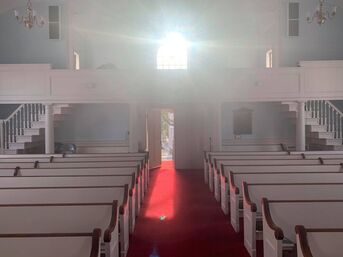 So we had our outdoor communion service yesterday. It was our third attempt at such an event and you know...I think we are getting the hang of it. I made it up to the church early--like I used to--in time to run through the brief words I was planning to say, It was All Saint's Day. The church, of course, was quiet. It always is at that hour. the fact that we still use parts of the sanctuary for storage reinforced the feeling a bit. Then the rest of the "crew" arrived. We set up with relative ease on the steps of the church. There was the communion table we always use, and the bread (for the first time individually wrapped communion wafers). Of course we also had the wine and the "wine". We always use the single-serving "little cups" for communion so--as long as we don't pass the plate and instead have folks step up to the table--they are naturally distanced. Everything was laid out on their respective trays the day before. They were maximally safe. the whole thing made for an odd combination of high and low church. Partly we were doing what we usually do. Partly we were a bit "off". However I would say we were comfortably off. Nothing felt alien. Finally, we decided on a "sound system". We had a microphone and a used practice amp that I bought a few years ago for $25. The goal was to reduce any yelling the officiants had to do. I yell when I am just chatting with someone. I yell even louder if I think people cannot hear me. Then people began to arrive. We waited the start time a bit so that folks having trouble getting settled could do so. Most people stood. We grabbed a chair for one person who has trouble standing. We grabbed a mask for one person who forgot theirs. Then we got rolling. The service may have been a bit casual for All Saints and it was definitely shorter--slightly under 25 minutes. However, it was the reason and the ritual for gathering. Truthfully we hung around for well over an hour in the end. It was good to see folks in 3D. This is the sort of thing I am willing to be a cheerleader for. As a church we are affiliated with the UUA and the UCC but really we are a community church and Congregationalist in its broadest definition. Worship isn't a discrete moment that happens in a specific place or at a specific time. It is what happens when we live our lives together as a community and a congregation. That is part of the tension, sometimes, when we think about how to respond to the pandemic. In another tradition--though I am actually having trouble thinking of any--perhaps there is a reason to elevate the "show" of worship over the communal needs of members. We are not a part of that tradition, though. We are part of one where we assess the needs of the people before putting folks at risk. the body and the spirit are connected after all. Yes, there are reasons why we might want to step--as a group--through those doors and into the sanctuary. There are issues of mental health, which I take very seriously. There are issues of church growth which I am not sure rise to the same level right now. I believe--and I know I have said it before--that God is Love. Sometimes we show our love for each other and for God by being together. Sometimes we show it by being apart. Sometimes we show it by standing on the church steps to take communion on a cold, snowy, November day. Part of our job--not just my job but all of our jobs--is to lead with that. We are opening our hearts during this dark time to the Divine and to our fellow, fragile, human beings. Back when I, my ministry, and Facebook were young, there used to be a big fight every year in the online "clergysphere" about whether it was ever appropriate to cancel worship during a snow storm. Many people--including many religious liberals who served churches that closed in July--insisted that church remain open saying, "God must be worshipped in God's sanctuary". What a tiny God that must be to live in our tiny buildings. I never found that argument to be terribly compelling.
God is not lonely. God doesn't need us to come visit. God is everywhere. Love is everywhere and we must adapt to what nature throws at us, knowing that the Divine presence is, in fact present wherever we may be in our storms and trials, Let us seek that Divine Love. We sure do need it now. I went out for a walk at Glenwood Cemetery this morning before work. It is important to get out these days. I would have gone anyway (I need the steps) but we are having our first snowstorm and It was worth taking a moment to greet it. Snow makes things quiet. It reminds us that in the end nature will prevail over we fragile mortals. It also, of course, alters the landscape and makes old visions new. Now that I am not moving around as much as before, these changes in the neighborhood are even more worth marking. Also--and this is important as well--I knew that there wouldn't be that many people out. Even in the pandemic, snow and rain keep the numbers down so the suburban outdoors feels bigger than it usually does. On my way over to visit the Algers (former denizens of the parsonage), I did pass the time of day with one neighbor and her dog. That was good, too. I made a video of the Algers in their current situation. Sometimes cemeteries are just pretty, even around Halloween. I greet the snow with ambiguous feelings every year. I don't like to drive in it. I don't like to shovel it (a task made harder with my new back). I also don't like how, when I need to be somewhere, I must begin earlier in order to "gear up." However, walking is good. I love walking and this adds a new dimension and a certain magic to the whole endeavor. When it is my turn to run a roleplaying game I often start it in winter, because it is so much easier to see the mystical in the mundane. In the Lion, the Witch, and the Wardrobe, snow is a heavy-handed metaphor for the absence of the Divine but I have always seen it the other way. The simple lines of the familiar make us see the whole environment we move through in a different way. Anyway, it was a nice distraction to get out and remember that--even as we prepare for a winter of rising infection rates along with social unrest--the snow gives us a gift as well. amazingly it is still coming down. It looks like shoveling is in my future at some point. still, I will enjoy it when I can. 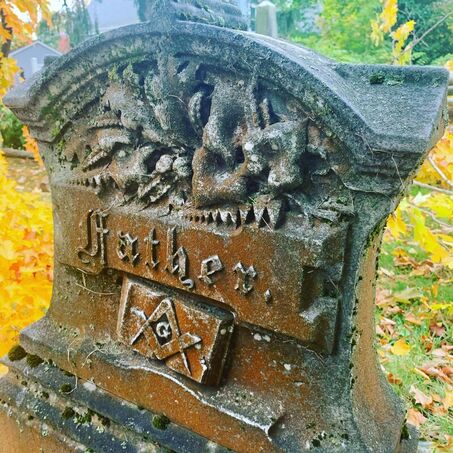 The grave of my colleague Rev. Horatio Alger Sr. in the yard behind the church. The grave of my colleague Rev. Horatio Alger Sr. in the yard behind the church. In my previous post I mentioned that we recently had a couple of deaths in our congregation. Neither of them were COVID-related. That, of course, didn't make them easier and the pandemic did complicate things. The reason I mentioned them in a post here was because it wasn't clear what the families would decide about formally remembering their loved ones. In the end, one family decided not to have a service of any kind and sent us all a card with a picture of Jim and a moving eulogy folded up inside. We posted a shorter notice online as did a number of organizations he was connected to. I still have the letter next to me as I write this. It was an effective way to remember a remarkable man. The other family decided to have a slightly-larger-than-usual graveside (outdoor) service. Not everyone could come, but many people could. I was asked to officiate and so at the appointed time we went over to Glenwood Cemetery. Clergy people do a lot of work in cemeteries. This is just a fact of the job. Yet, It isn't always what lay people expect. After all, most folks see a clergy person just a few times a year at funerals, weddings, and--if they celebrate it--Christmas Eve (or some other holy day if they don't do Christmas). Cemeteries, though, see a lot of action from people like me. There is usually a small committal attached to a larger funeral. Often it is just the family either before or after the main event. That said, a religious professional is usually there. Back before the current unpleasantness, these services were simple things. We would say a few traditional prayers. Maybe one more person would share a story that couldn't be told at the church. We lingered by the grave. Then...we moved on. Honestly the service last week wasn't all that different. There were more stories and a few more prayers. Augie was a veteran so the color guard was there. There were chairs set up among the other graves. Once again, after a while, we moved on. It did the job, though, just like the letter and the email posting did for Jim. They were both rituals of memory and of saying goodbye while recognizing what of them will remain with us. But...back to the cemetery for a moment... A walk through this cemetery is full of memories for me. Many of the gravestones we were sitting among marked the resting places of people I know and buried. I leaned my cane against one such stone for the duration of the service, reassuring the people around it that the owner of the stone and I were old friends. There are a lot of stories there. One of the first activities my new interns have to endure is the "death tour" when I take them around and tell them about the folks who are buried from the church. We are holders of memories, after all, and sometimes I walk through there by myself to refresh my own memory. One time, in fact--and this came up at Augie's service--I was walking through the graveyard while cutting an apple with a knife, stopping at the various graves of people I know. This freaked out the neighbors and I spent the next hour at the gate of Glenwood with three police officers and their dog--I was deemed a "flight risk"--who really wanted to arrest me for something but couldn't figure out what. I preached a sermon about it, actually, so it is a bit of a congregational legend now. This Sunday I am preaching about the sacredness of place. Though I don't specifically mention them in the sermon, places like Glenwood hold a great deal of significance to people. They honor the dead, of course. They make you think of your own mortality, which makes some uncomfortable. However, when I am there I cannot help but think of the lives that led up to those mortal remains resting under the granite monuments. I am grateful that the cemetery exists to honor those lives. How better for me to remember them? Remembering the dead is a bit of a mission for me. It is why I like history so much. When I was a kid growing up in Maine, it wasn't that unusual to stumble on the ruins of a graveyard rising up in the woods. Each time most of the stones were turned over and the names hard to read. Still, against all odds (or thanks to some anonymous hiker) some stones still stood to mark whatever was worth marking when they were originally placed there. I always wondered who the people buried there were. I also wondered when the memories stopped and no one knew them enough to come visit. Turns out the reason--at least where I grew up--could be traced to economic disaster, the American Civil War, epidemics, and pandemics. You hear about cemeteries falling into disrepair today. Often they hold the remains of an oppressed minority with a history that has always been put down. I honor the people who struggle to keep them open in the face of the inexorable march of time. It is a form of heroism that frequently remains unsung. Eventually, I think, our contributions no longer need a name or face attached to them. We live on and on from the instance of our lives into eternity. Still, we can hold that off for a while...can't we? Until that time when I, too, am forgotten, you can find me at Glenwood witnessing for now and maybe some day being witnessed as I rest among the souls in a sacred and familiar place. 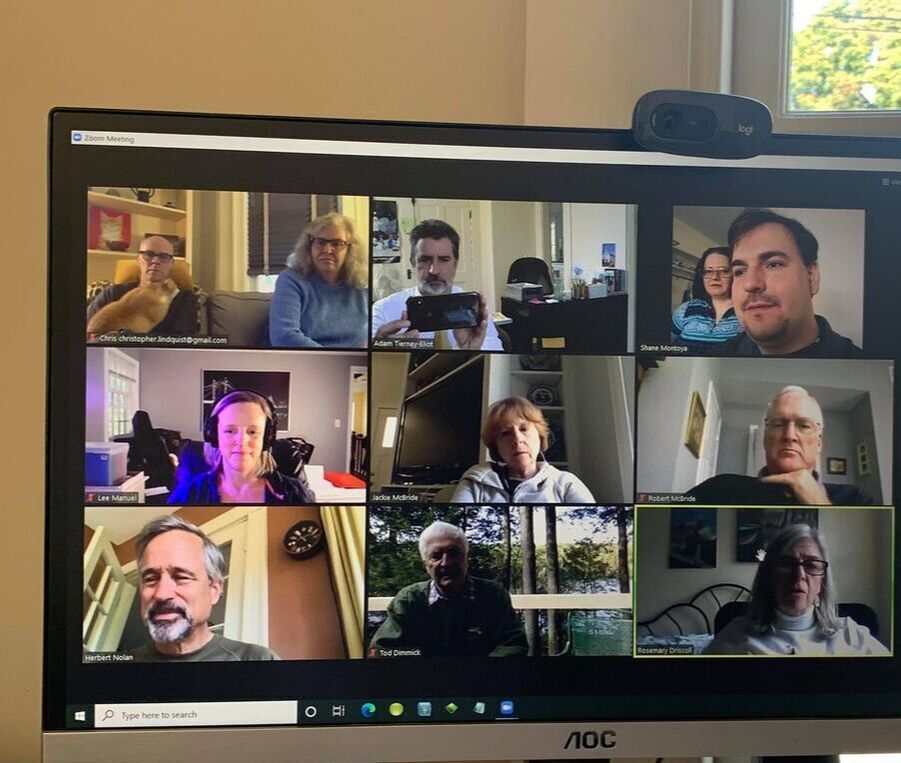 I had the surreal experience of getting ready for church almost like I used to. It was yesterday--a Sunday morning--and we had planned a outdoor communion service for folks in order to slowly ease our way back to in-person worship. As any church person will tell you, regular Sunday morning church is still a long way off. Here in the United States we persist in the idea that we can will the virus away, or negotiate with it and then--when it sees our resolve and our good intent--it will ultimately leave us alone. Of course, that isn't how it works. So for now even a masked, socially distanced, outdoor event is concerning. Anyway, what we decided to do was have this small service at 9 AM, just an hour before our pre-recorded YouTube service. That meant that I had to get up and go through the Sunday morning rituals of 2019 to prepare. By "rituals" I don't mean anything religious. I mean getting showered, shaved, and dressed. I mean gathering my service materials in one place and then, around 7-ish, heading to the church to start getting things ready there. I did this every Sunday for years, not really waking up until I was well on my way. Yesterday, though, I found it hard to get my act together. It turns out that getting ready for church is not at all like riding a bike. I felt clumsy. I had to find my dress shirts. I had to match my pants to the rest of my outfit. I know that pants jokes are pretty tired right now...but it was true! When we are in worship out in the "real world" the participants bring their whole bodies to the occasion. Suddenly had to think again about how that body should be presented. Anyway, I managed to get out the door and over to church. We (thanks deacons!) managed to get our communion table out on to the lawn, set up the elements (arranged the night before to limit human contact on the day), and place a station near the "entrance" for spare masks and hand sanitizer. We decided against amplification expecting--rightly--a small turnout and only slight car noise on an early Sunday morning. Then we had our service. Ultimately there were nine of us. Given the size of the church that is not unexpected or unusual. Also, some of our members don't take communion for various reasons. One member arrived late and some of us took it again so he didn't have to go through the ritual alone. Then we hung out a bit and waited until 10. At that hour we rang the church bell. One of our denominations (United Church of Christ) asked its churches to ring their bells 20 times at 10 am every day for 10 days. In the symbolic math we are using this is meant to represent and mourn the 200,000 COVID deaths in this country. We are almost done. The last day is Tuesday. The reason for ringing he bell has been a heavy subject, of course, but there is joy in pulling the rope and hearing the sound of the bells again. After the bells the "live", even "normal" church was over. Everyone went home except for me. Instead, I turned on the church computer and watched/moderated the YouTube worship, taking communion again with essentially the same service lead--again--by me...but recorded on Wednesday. I have to say, the act of being both in front of the congregation and in it is something I can't quite get used used to. Like the bending of the church week, my sense of perspective and place has been challenged as well. YouTube lead to Zoom Coffee Hour, where a few of us stayed on and talked for a good long time. Then...it was back to in-person for a small picnic (bring your own food) at a nearby park. Again, it was good to be with the gathered church. Even though we could not sit a close as we used to or share food, at least the conversation could be more organic than the one we had online. Once again, we brought our whole bodies and it was good. So that was my church day. I was exhausted by the end, but happy. I had seen people, we had talked. I had taken communion three whole times! However, the experience underscored the liminal nature of this time. It made me think a bit about the challenges and blessing of travelling though our current uncertainty. So, narrative of my day over, I have some random thoughts to share as well... 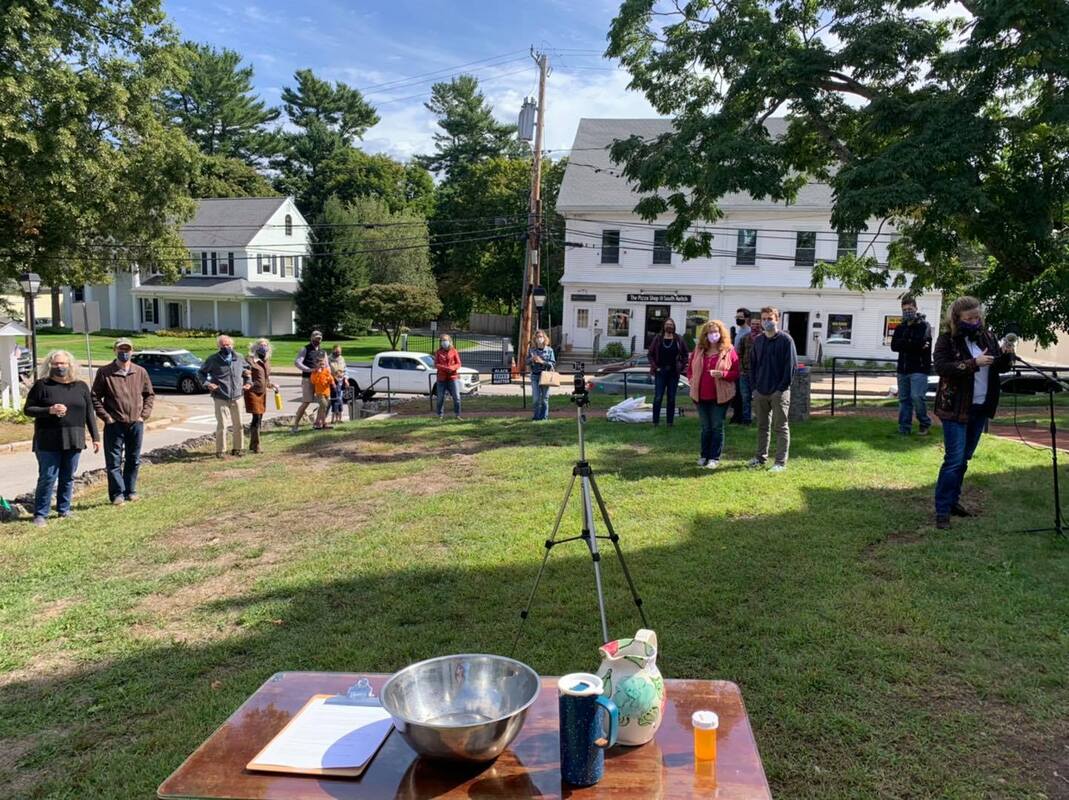 These are numbered but NOT in any particular order... 1) Attendance is lower this year than in the spring. By "attendance" I mean in-person and virtual. I have a rough idea of how many church members watch and that seems to be steady. We can count folks at our in-person services and events (we have had a few now). What is happening is that online, folks who don't usually go to church are ceasing to watch the videos. Also, people looking for a church are frequently putting their plans on hold. This isn't entirely a bad thing. In person...well...do we really want a large turnout or just a good one? We don't want people to get sick. I also wonder if there are other concerns as well. We are stressed out, many of us. There seems to be--as we start our fall--quite a bit of free-floating anxiety looking for a place to land. I am worried that people are finding it hard to concentrate--I am--and I wonder how that impacts not just congregations, but the world at large. We are experiencing a number of depressions--not just economically--as a group. How do we survive? How do we help others? I don't know but I am thinking about it. What I do know is that we will need to get used to this lower turnout. We will also need to get used to a net increase in small events. Tiny worship, picnics, "Yard Theology" these are important--even necessary--ministries but they require a lot of effort and intention at times. We need to remember how important and necessary they actually are. We must remind ourselves that the effort is worth it. 2) One important topic of conversation yesterday, at all three events, centered around the deaths of two beloved members of our church. I knew Augie and Jim very well. Most of us did, so we are in mourning. It was good to talk about them yesterday. That said, our conversations were informal. When and how do we formally mark their passing? Normally I would be planning memorial services and we would go through the institution of public sharing and grief. That process has been interrupted. We have some thoughts about what to do but nothing that is deeply satisfying. 3) Perhaps obviously, I found it a challenge to shift gears from event to event. This is new. Back in the day I could stack up church stuff from 9 to 9 on a Sunday or a Saturday and move through the stages, often seeing the same people in different contexts throughout the day. I would be physically tired at the end but not mentally or spiritually tired. In fact it was quite the opposite What was different about yesterday was going from in-person to virtual and back to in-person. It was strange having two services with one so "virtual" and one so not. Only one other person did all three events. I will ask her how she felt about it. I know she will tell me what she thinks. After all, we are married. 4) The logistics of this time are strange. I prepped two services this week and attended both on Sunday. We are planning more "tiny worship" services. Some of those will not be centered around communion. We need to do this for the mental health of many of us and, of course, for the future of the church. That said, it is a time-consuming process that brings the strangeness I mentioned earlier. Time and space are bent like a slow-moving (and somewhat less exciting) DR WHO episode. It is a challenge for our leaders. 5) As a religious professional all I can say is that the j0b is changing and as we come out of the chaos some parts feel deeply old-fashioned. I mean, when I went through seminary they were all about the pin-striped executive model of the 1980's combined with a professionalization of the "care" portion of the job. It was about being an organizer, an expert, and a boss. We were meant to be professionals in the mode of many other professions. Now we are blasting back to the 19th Century where the cleric is responsible for multiple coherent worship services, expected to keep up on--and speak out about--social issues, and to study. Ministers find themselves being artists, intellectuals and--dare I say--religious leaders in a way that was out of fashion for a time (at least in the church circles I have moved through). We have always been these things--clergy are generalists--but now our spiritual and religious center is what people want or need, rather than the tasks and skills we are trained up in and use to get through our day. 6) I have no idea what the future of the church will look like. This is true of the "big C" church and also of the one I serve. So much is in flux. Each individual is making a series of micro-decisions that affects how they will interact with their faith in the future. Each person is making similar decisions about how they will interact with the institutions in their lives. When the faith and institutional questions intersect, the old 20th Century will feel it. Whatever the change is, it will start local. Every context is different. That is all for now. Yesterday was an education, obviously, but this is a new day. Informed by the past we look toward the future. I wonder what it will hold... Here is the part of yesterday I can share. We made the choice not to record in-person, but the internet worship is eternal. It was World Communion Sunday. 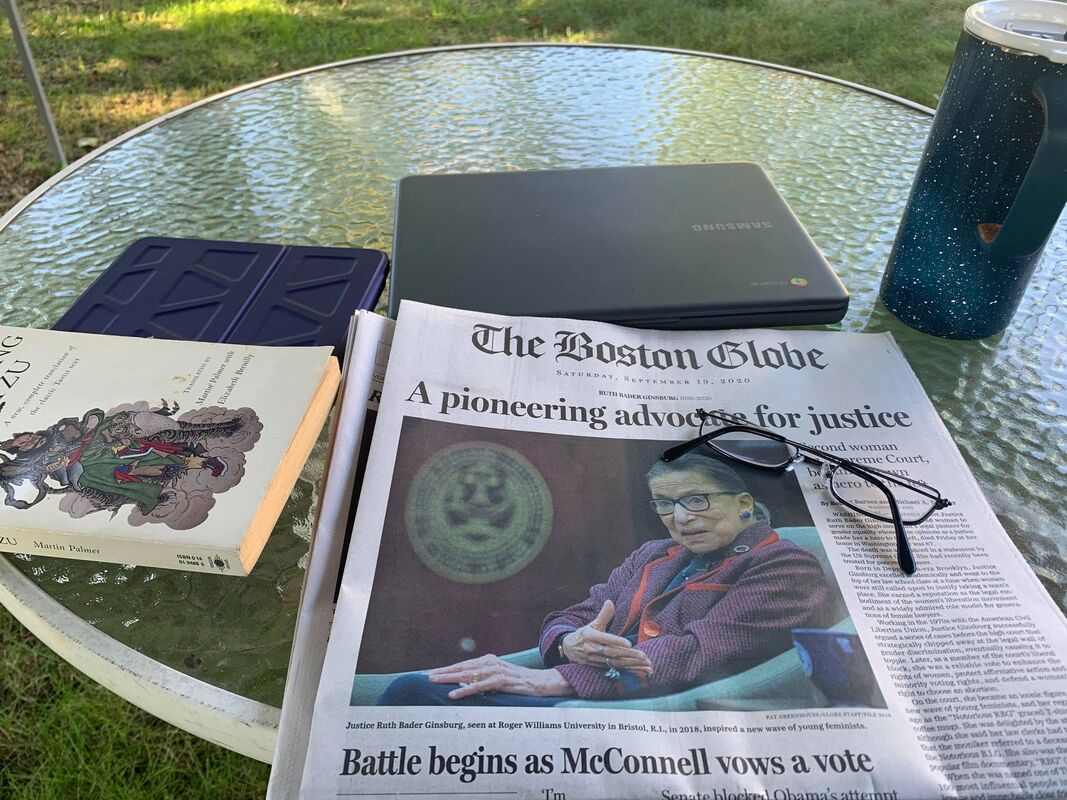 I woke up early this morning because my back was killing me. The final frontier of my recovery seems to be that every day I get about an hour less sleep than I need. It is quite the time for it. Every day is already surreal so a little sleep deprivation gives me an excuse for moments when I am at a loss for words or for when brief waves of anger, frustration or grief come over me. I am just a bit sleep deprived...yeah...that's it. Now I am outside beginning the process of sermon writing. I am not writing tomorrow's sermon of course. That was recorded on Thursday. Nope. Time has bent so much now that the weeks overlap. Each part of life has its own sort of week and each one of them appears to be nine or five days long. It is hard to do good work in this situation. We all know this no matter what "work" might be whether it is paid or unpaid activity...or just getting up in the morning. Next Sunday is our "Ingathering" service. We put it off a week to get ready as there are a number of moving parts, not the least of which is our "Water Gathering." That is when we bring water from a place that has been important to us over the past year and collect it in a bowl for the purpose of Baptisms, Child Dedications, and other blessings where water would be helpful. In some strictly Unitarian Universalist churches they call it "Water Communion". Since we are also a member congregation of the United Church of Christ we do not. We celebrate actual bread-and-wine communion the first Sunday of every month and water communion definitely isn't that. Anyway, it will be a bit crazy with "live" parts occurring beforehand to be taped for the actual Ingathering Sunday on the 27th. More time bending...No worries. But right now I am thinking about the theme for that Sunday. I am thinking about water, its powers, its flexibility, and its vastness. I am thinking about the rough currents of this time. "Fortune is a river," says Machiavelli, and many of us feel the uprooting force of fortune in flood. Frankly one would have to be pretty darn insulated to see and hear the news of the past few weeks and be able to deal with it on a purely intellectual level. The problem for the preacher these days is how to address the many current crises of our time while also connecting to the Divine. The challenges of this world drag us into the muck where we fight. That fighting is good and necessary! This is no time to be polite in the face of state-sanctioned violence, government neglect, and environmental catastrophe. There is no excuse to hide for long in the face of the bending of time. However, the power that we draw from to keep from getting consumed comes from our faith and we need a strong faith now. You see, I firmly believe that the blessing of a faith that challenges us is that it prepares us for the challenges we face. I also believe--given the world we live in--that our faith will not be able to sustain itself on its own. The spiritual path needs tending. Those of us who tend it regularly--at least our own if not the faith of others--are struggling. What about the people who got busy and haven't checked in with The Ultimate lately? What about the ones who are discovering that relying on cute quotes from Facebook memes isn't the way to keep keep one's eyes on the prize when the sky is on fire? Anyway, preachers, I see you this morning. Church leaders of all stripes, I see you too. I feel like I am not doing my best work in a time when my best work is necessary and I know that some of you feel that way as well, no matter why you couldn't sleep this morning. Here is the thing, though, we, at least, need to rely on that relationship we have cultivated in better times. Even now--especially now!--we must let go a bit of our own responsibility, our own reliance on competencies, and fall back into God. We need to pray (or meditate or study or whatever your particular discipline is) we need to pause. We need to understand that when we work at our best we are reaching into the hidden world to build a better world that is not concealed. If you take care of your hearts and souls, I will take care of mine, but we need to do this together and with others. Then we can reach out to care for this hurting world. It will require humility. It will require that we look beyond ourselves, not just to God but to other human beings and to nature. Self-reliance is killing us. So is the cult of individualism. Tomorrow's sermon (already recorded and in the can) is about our struggles with new rules; with trying to do the right thing in this world. I think on Ingathering Sunday I will lean into the vastness of Creation and the power of Divine Love once again. We need to remember its presence when there are forces in this world interested in stripping it from us. We need to manifest it, too, even though the reaction is...less than ideal. It takes faith. It takes courage. It takes hope for the world. Yesterday, while we were all discovering that Justice Ginsberg had died, my son and I were testing out the new "portable fire pit" at the parsonage to prepare for the Yard Theology session that will occur on our driveway later today. It is cold--52 Fahrenheit where I am sitting right now--but we need to see people. We need to talk. We need to remember our shared humanity during this time. Wherever and however you are today, I hope you find it. Let me know if I can help. We can do this. I do believe it. Today I pray That the new week will be better than the next That hope will come out of this darkness That we see our connection to each other To Creation To the Divine And I pray For the strength and wisdom To travel through the rough land To the better land beyond I usually keep the Ukestra videos somewhere else on my page but I wanted to put this one here. Recorded under a variety of names, this song began life as a poem by Woody Guthrie to commemorate the (at that time) anonymous Mexican victims of a plane crash in 1948. The song was set to music by a schoolteacher named Martin Hoffman and it has been sung ever since. The passengers were migrant farm workers being transported back over the border to Mexico. Reports at the time did not feel the need to mention their names. A name is important. It has practical uses, of course. It is also a recognition of our existence as holy children of God. To erase someone's name doesn't really erase their existence or their holiness, However, it makes it very hard to tell their story. What is happening today is a willful ignorance--a gross perpetuation--of our past and present injustices. It is suppression and oppression of people. It is an attempt to erase the reality of our shared humanity to comfort the status quo. We cannot stand with the status quo. We cannot allow the victims of today's crackdown on immigrant families--separating them from each other and in some cases "losing" their identities--to become mere numbers. We cannot allow ourselves to be numb. We must know their faces and their names and speak them loudly to the powers and principalities of this world. Obviously, this song still has meaning for us today. Our nation--both before and since the plane crash at Los Gatos--has grappled with recognizing the humanity of people who do not fit a "traditional" (that is, white) concept of "America". We played this song on Sunday in recognition of past and ongoing acts of injustice. It is a reminder that the more things change the more they stay the same.
One postscript to the story is that years later, thanks to some diligent work, the names of the victims of the plane crash were discovered. Here they are so that they are not forgotten again.... The 28 Mexican Citizens Who Died in the Plane Wreck Over Los Gatos January 28, 1948 Miguel Negrete Álvarez. Tomás Aviña de Gracia. Francisco Llamas Durán. Santiago García Elizondo. Rosalio Padilla Estrada. Tomás Padilla Márquez. Bernabé López Garcia. Salvador Sandoval Hernández. Severo Medina Lára. Elías Trujillo Macias. José Rodriguez Macias. Luis López Medina. Manuel Calderón Merino. Luis Cuevas Miranda. Martin Razo Navarro. Ignacio Pérez Navarro. Román Ochoa Ochoa. Ramón Paredes Gonzalez. Guadalupe Ramírez Lára. Apolonio Ramírez Placencia. Alberto Carlos Raygoza. Guadalupe Hernández Rodríguez. Maria Santana Rodríguez. Juan Valenzuela Ruiz. Wenceslao Flores Ruiz. José Valdívia Sánchez. Jesús Meza Santos. Baldomero Marcas Torres. There were prayers this Sunday as well. Our Congregational Associate prayed for the displaced people of the world. I closed with a prayer for the dream of that Commonwealth of Heaven, or as Woody Guthrie put it in one of our readings, "One Big Union." Prayer for the One Big Union Yes, we do all believe in “One Big Union” We may not call it that We may use terms like “The Just Society” Or the “The Utopian Ideal” Or the “Commonwealth of Heaven” But what draws us together in places like The Eliot Church Is the dream of something greater The will to oppose inequality To find a home for the displaced And to see the humanity of the stranger We also gather here to recognize the call In the words of the prophet Micah To do Justice, Love Mercy, and walk humbly with God We know that this new world This new society will not come Without the sacrifices and labors Of those who envision it And we know that we need help To maintain our vision And so we pray: Dear God, We know that we have fallen short Of the call to equality, peace and justice To the building of a world That is free of violence and oppression That give to each according to their needs In the spirit of radical welcome that Jesus And other prophets taught We know this and we are sorry And promise to commit ourselves To the One Big Union again Dear God please give us the strength To keep on traveling down that road A road with many distractions Many struggles and discomforts Please give us the assurance That (even though we may never see the day Of the Commonwealth here on Earth) Please give us the assurance we need To still work toward that day In Faith, in Hope, and always in Love Amen 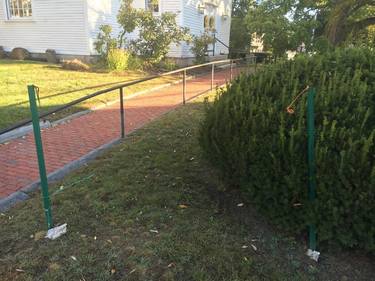 If you happened to walk or drive by the Eliot Church in the last few days, you probably noticed that something is missing. On Saturday night (as best we can tell) someone tore our Rainbow "Peace" flag out of its usual spot and walked off with it. In the morning, I noticed its absence as I headed in to work, Of course we went through a brief "denial" phase. We don't like to think of our neighborhood as a place where things like this happen. However, it appears that it has. The grommets were still in their place so it wasn't one of us moving it for some reason. Members even walked around the neighborhood to see if the wind blew it away. This theory already seemed unlikely, as we had recently switched out an older, more fragile flag for this one. It was in pretty good shape. Needless to say, we didn't find it. Eventually we contacted the police and they did the same things. The officer we spoke to, came to the same conclusion we did. Yes, it was most likely stolen. We don't know who did this, of course, and hesitate to ascribe a detailed motive. That said, we assume that they didn't take it to put in their room or to otherwise display for themselves. If that was the case they could have just asked for one. We have plenty for that purpose. So, what did we do when we met for worship at our appointed time? It was World Communion Sunday, a service dedicated to what holds people together in the midst of disagreement. It is a day when Christians around the globe take communion together. The issues represented by that flag, of course, are ones that divide many people both Christian and non-Christian. It seemed fitting to mark this occasion the way we had planned. .We took communion, too. We chose to stand for unity and for building relationships across ideological lines. Of course we also prayed. We prayed for whoever took the flag. We prayed for those in our congregation who were impacted by the theft. Finally we prayed the entire LGBTQIA+ community, who have to endure much more than a simple act of vandalism. In fact, they do so on a daily basis. What are we doing now? We are putting up a new flag. Like I said, we have plenty. We will even give you one if you want. We like to see them put to use. That flag is part of our identity, like communion, the cross in the sanctuary, or the many good works we perform in the community.. It stands for peace, obviously. It also stands for diversity. It is one of the ways our congregation offers support and welcome to all people. It is not healthy to hide who you are. We are an Open and Affirming congregation. We will not hide. This is us. When I was a kid, this machine shed was a big part of my life. I painted it (twice). I helped reshingle it after the world's largest raccoon tore racoon-sized holes in the roof. I learned to sharpen various dangerous farming implements in its back room. I learned to "grease" vintage hay rakes that I would then pull behind a 1948 Ford tractor when I was learning to drive. Perhaps most importantly, it was the base of operations for my grandfather's Christmas tree farm and--therefore--one of the most formative elements in my understanding of how to celebrate the holidays. You see, even then Christmas and Advent were part of my job. I would spend my summers up on the side of those hills as a teen swinging a machete along the edge of a young tree in long, diagonal, downward strokes. I would try (and fail) to avoid the poison ivy, sunstroke, and angry critters who lived at the base in the underbrush. I did manage to not cut myself, which was an achievement considering how much I enjoyed sharpening things. Planting was the worst. It was heavy, boring work and there was no way to pretend you were fighting trolls. Thankfully my little brother, Dan, started to come down with me after a couple years. Then I had a friend and ally in my misery. At some point we would head back to school and family in Maine. Other relatives (cousins mostly) would help Grampa look after the trees along with the rest of the farm until we could come back around Thanksgiving. Thanksgiving meant tagging and counting the trees, mowing one last time between them, and decorating the machine shed to attract families from Poughkeepsie and New York looking for "authenticity" in their holiday rituals. It also meant dragging the immensely heavy antique sleigh onto the porch of the house. Everyone helped with that. The day after Thanksgiving we would cut one of the largest trees and put it in the front hall of my grandparents' house. The day after that we would cut one for ourselves. Usually it was slightly ungainly and unlikely to sell otherwise. Then we would tie it on (or put it in) the car to drive six hours north to our home. Yes, it was a bit "coals to Newcastle" to bring a tree from Dutchess County, New York to Maine. but we weren't the only ones! It was part of our family tradition. It was something from the ancestral home. Eight generations of our family had lived and farmed there. It was something that made my mother happy, a part of her childhood that we would keep in the house for a couple months until it was just too dangerous to comprehend. I don't do any of that now. When I became an adult and lived in places like Chicago and Detroit we had a plastic tree. When I served churches in northern Maine we went back to sawing one down at a place where you left a $20 bill in a can by the road. However, when we finally moved to the 'burbs I had a sudden realization. I am still deathly allergic to poison ivy. We persisted cutting our own for a while but after a year or two of me preaching my Advent sermons like a goblin on Benadryl we resigned ourselves to picking one up at the local "mom and pop". They are nice folks. I also get my turkey and pumpkins from them. Still, I do think about what it was like back in the day.
Life moves on and the rituals of the season remind us of that. Climbing into the attic to fish out the lights and the decorations is easy in the years when memories are mostly good or if bad ones feel distant and the future seems bright. Other times it is a rough go. Either way, we hold on to the acts that make this time special. Putting a tree in your house can be a simple thing that you do because you always have. It can also be an act of resistance. It is a strange activity when you really think about it. This is why we often wait until the time feels right. It took a while for us to get one this year. Years ago as a blade-wielding teenager in the hot sun I wondered who would end up with the tree I was preparing. What place would it hold in the celebration? What sort of family would it witness? It always seemed worthwhile to give it the attention it deserved both then and now. Be mindful, whether you are handling tools or hanging lights. I have been both busy and mindful lately, just not with trees. I have been fortunate that my present includes the promise of Christmas Eve services and Advent candles. There is still holiday stuff for me to do. It is still part of my job. These days that job is quite a bit less isolated than raising trees can be. Besides, there are other rituals that help bring meaning and underline the specialness of the season. This year the idea of a small, hot flame in the cold dark has been more compelling than the festive pine with its promise of Christmas morn. Back on the first Sunday in Advent we held a rally against racism on the town common. After the recent election there has been a rash of racist activity in the area that needed to be addressed by our community. Our interfaith clergy association was among the groups that stepped up. We lit candles. We stood in a group. We held our lights near each other to push back the dark. I said a quick prayer at the mic that I do not remember and as I stood, listening to various colleagues say (and pray) their piece, I felt a different sort of spirit. I was reminded that even as we walk through hard times in our lives we are not alone. There are friends and strangers to hold us up. There are people for us to lift up, too. I value them and am grateful for them all. It was another chance for mindfulness. Anyway, we got the tree up this evening. We bought it at supper time so it sits in its stand undecorated for now. Tomorrow the house will smell like coffee and evergreen. Eventually we will put up those lights. Then we will go up to attic. After that we will continue to live in hope and love for another season. 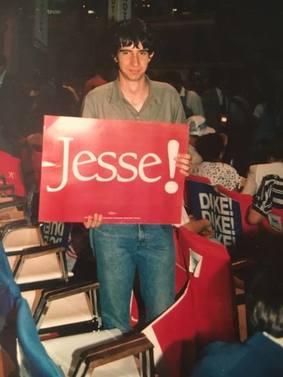 It is about 11:50pm on election night and I was planning to go to bed. The "paths to victory" for my candidate, Hillary Clinton, are closing rapidly and I don't know if we will win or lose, but the tone of conversation among the pundits, my friends, and my family makes it clear. We are expecting the worst. I was going to hit the sack, rest up, and head back out tomorrow. I really was going to do that. The computer was off and the lights were out. ...But first... I want to say something that will hopefully still make sense when I look at it in the morning. I just went into the living room to turn off the TV and I saw my son falling asleep on the couch, still waiting for Pennsylvania. When I saw him, my mind drifted back to when I was his age. It was election night and I was in the "Governor's Suite" at the Portland Sonesta Hotel. We had gathered the family along with close friends and key campaign officials to plan the exact steps that would lead to my father's concession speech in his race for governor of the state of Maine. There was silence mostly, and tears. Eventually we lined up and walked to the door, Then we slowly marched down the hall and into the elevator to the 1980's-tacky ballroom where more people waited. There was more silence and more tears. The son of the outgoing governor appeared next to me and guided me, my sister and brothers up to the riser and behind the lecturn. "It is going to be OK," he said. Then he drifted into the crowd. I was standing directly behind my parents and slightly to the right. My mom was standing next to my dad. Then he began to talk. I don't remember much about the speech but it was one of those gracious ones. Dad had lost to a man who had been a friend and rival since high school. They had the sort of respect for each other you don't see anymore. What I do remember was watching Dad finish reading a handwritten page of his speech and then slipping it to Mom in a way that the people out in the audience--shocked and dismayed--could not see. Her hand was on his back and Dad stood as still as he could but we were all shaking. It was one of the darkest moments of my life and I haven't really felt that way since. Now I remember it. I remember the sadness. I remember the sense that we happy few had worked so long and so hard and all had been for naught. All that we had hoped and dreamed wasn't going to happen after all. We--all of us in that hotel ballroom--had lost. In the morning we would need to face the new world. We would have to live with someone else's goals and dreams. You know what? I remember something else, too. I cannot tell you where the voice came from. Maybe it was inside me. Maybe it was something my parents said. Maybe it came from somewhere else in the room. Whatever it was and wherever it came from I remember standing up there looking out at the people and the cameras while saying four short words to myself over and over and over again. "So now we fight". So now we fight. That is what rattled around in my head at the lowest of moments when I was fifteen years old. We fight for every person who stood by our side. We fight for everyone who needs someone to struggle with them or on their behalf. We stand up for that cause we believed in enough to dedicate our time, our effort and our money. We will enter this new world with a firmness of resolve and a chip on our shoulders. Dammit we were right! That rightness was--and is--worth fighting for. You know what? Those four words have guided my life. That awkward kid in the picture is seventeen-year-old me at the 1988 Democratic convention fighting again, this time for Jesse Jackson. I sure know how to pick a winner, right? That week in Atlanta was when I heard the call to ministry. I chose to be a pastor because it gave me a voice. It gave me a way to enter into the struggle. It is now 12:30 and I have spent more time on this than I should. The outcome is clearer now. My son is yelling at the TV. I am glad he is a fighter. We are entering another new world. There will parts of it that will truly be awful. We need to keep hope alive. We need to check in with each other. We need to stand up for each other, especially for those who will probably receive the heavy blunt end of the backlash against our shared dream. Women, Muslims, LGBTQIA, poor people, Native-Americans, African-Americans, latinx and other minority groups need every ally they can get. We cannot let the side down. Dammit, we are still right! We will act that way. We may have lost but we are not defeated or dead. We must remember the requirements and responsibilities of a just society and we must shout them from the rooftops. We need to rush out of our houses tomorrow to continue what we began. Hold your heads high. Meet every gaze firmly and with confidence. No sulking. No hiding. Now is not the time. So now we fight. We will be back. The truth is on our side. and in the end... We. Will. Win. |
Adam Tierney-EliotThis is my old weblog of many years. I will probably post here from time to time is there is a subject that does not fit WWG. However WWG is the more active page at this point. Archives
April 2022
Categories
All
|
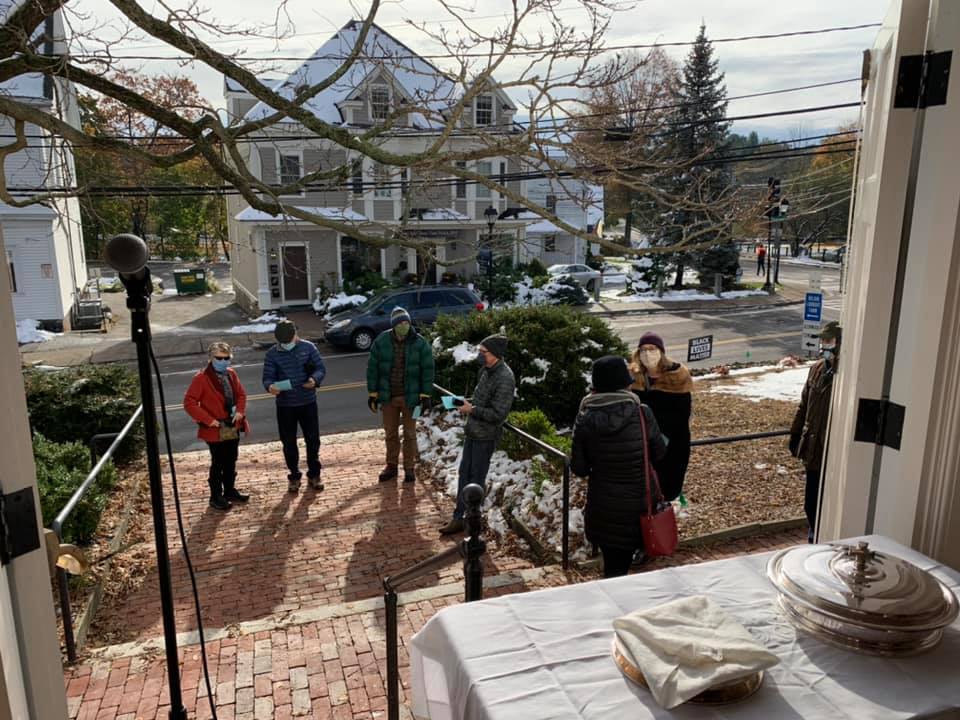
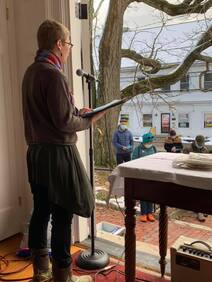
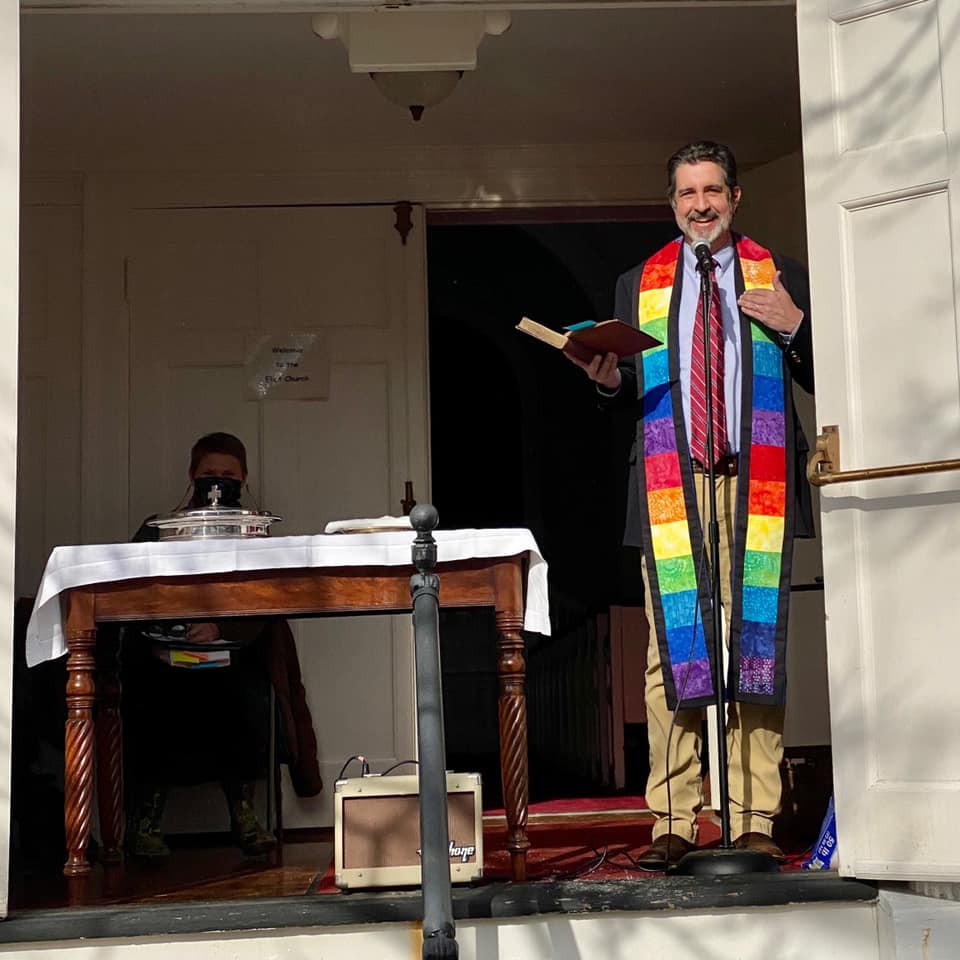
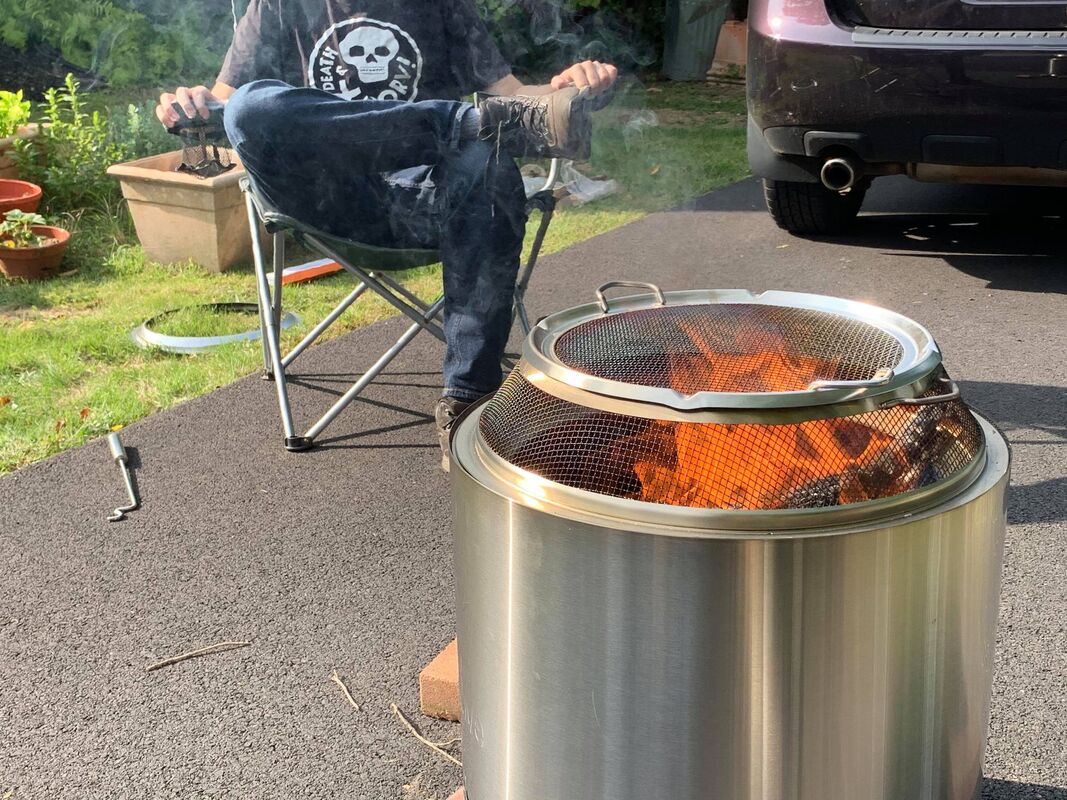
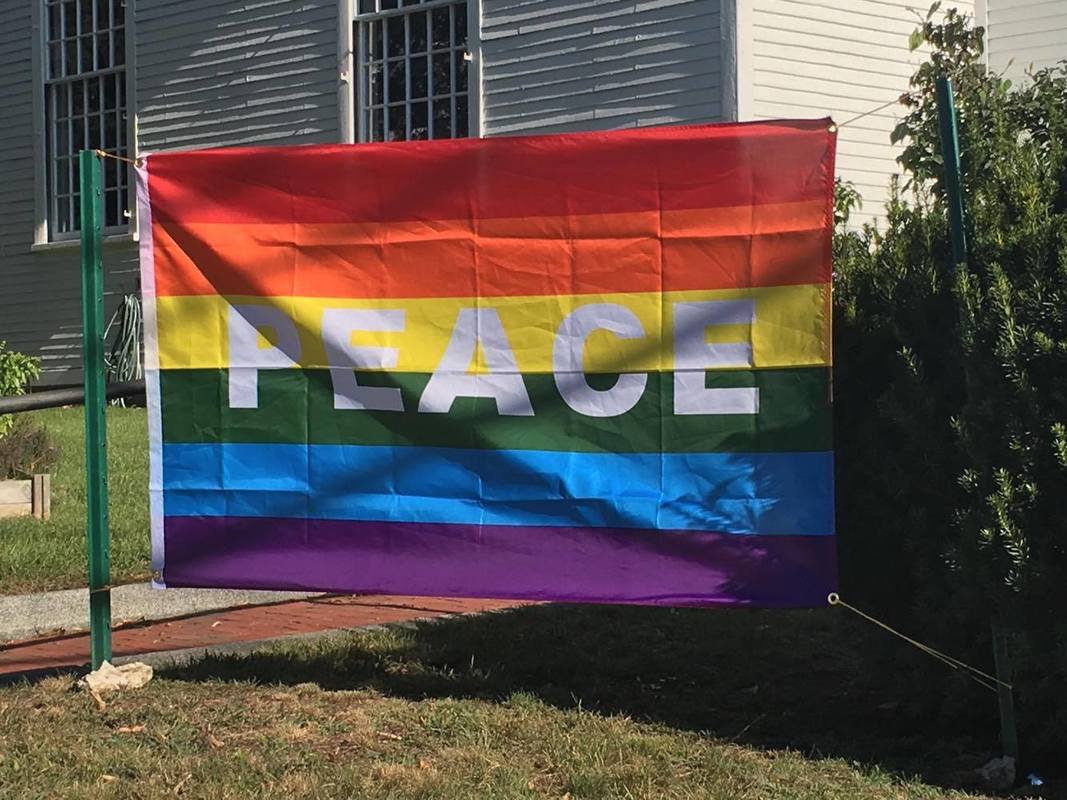
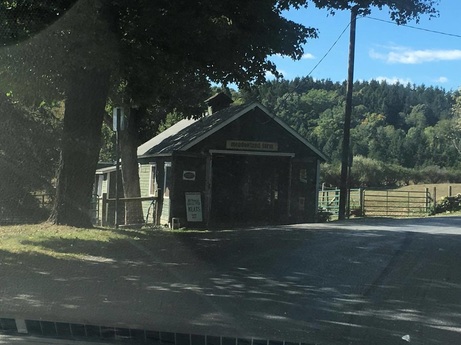
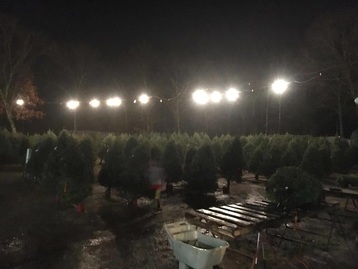
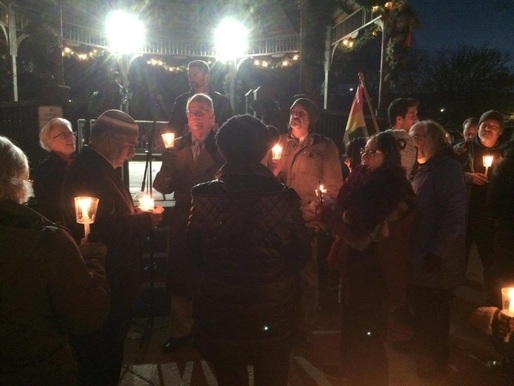
 RSS Feed
RSS Feed